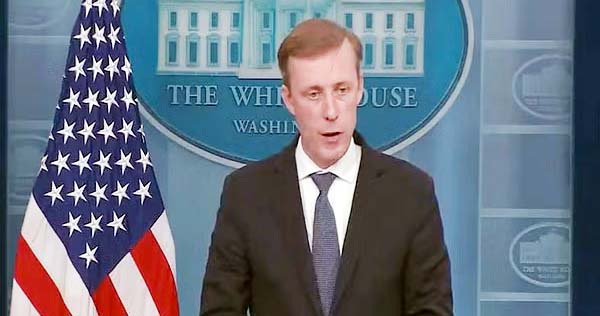Amidst the complex global shifts surrounding Iran-Israel tensions, US National Security Advisor Jake Sullivan is set to touch down in New Delhi on April 17, with meetings slated for the following day.
His arrival comes at a crucial juncture as the world is on edge, observing near-war-like scenarios emerging from the Israel-Iran skirmish, raising concerns about potential escalations in the Middle East.
Speaking on the weight of the visit, Anil Trigunayat, former ambassador to Libya, Malta, and Jordan, and a Distinguished Fellow at the esteemed Vivekananda International Foundation, leading their West Asia Experts Group, noted, “While this visit has been on the docket for some time, its significance has grown due to the worsening security situation in West Asia, which will undoubtedly dominate the discussions under these circumstances.”
“There are other pressing matters such as the expanding and intensifying US sanctions on Russia, which could impact India. Additionally, India enjoys strong ties with both Iran and Russia and could potentially play a more active role in easing tensions. As such, the bilateral agenda with the US is quite comprehensive,” Trigunayat remarked.
During his stay, Sullivan will explore Indo-Pacific collaboration, technological partnership, and engage with his Indian counterpart Ajit Doval for the annual iCET review meeting, previously deferred in February. He will also convene with other dignitaries to elevate the India-US relationship.
At a recent White House briefing, Sullivan emphasized that the US-India partnership has reached unprecedented heights with cooperation in technology and various other domains. “The alliance between the US and India—one of the BRICS nations—has reached new levels of engagement across technology, security, and several other facets,” Sullivan stated.
Responding to inquiries regarding a perceived decline in US leadership amid Iran, Egypt, UAE, and Ethiopia joining BRICS, and Saudi Arabia considering membership, Sullivan asserted, “Looking at the US’s position and rapport across key regions globally, we feel confident in our standing.”
Meanwhile, President Joe Biden convened with his national security team on Sunday to assess the Middle East situation in anticipation of a possible Iranian offensive against Israel. India, for its part, has urged immediate de-escalation of the Iran-Israel conflict, emphasizing restraint, a pullback from hostilities, and a return to diplomacy.
The Ministry of External Affairs stated, “We are deeply troubled by the intensification of hostilities between Israel and Iran, which jeopardizes regional peace and security.”
“We urge an immediate de-escalation, the exercise of restraint, a cessation of violence, and a return to diplomatic avenues,” the ministry declared. “We are closely observing the situation. Our embassies in the region are in direct contact with the Indian community,” the statement read, stressing the importance of preserving stability and security in the area.
Tehran launched drone and missile attacks on Tel Aviv following a vow of retaliation for an assault on its consulate in Damascus, Syria. In response to these events, US President Joe Biden affirmed support for Israel against Iranian aggression, holding an emergency meeting with top officials as tensions escalated in the Middle East. Given the situation, India advised its citizens against traveling to Iran or Israel until further notice.




